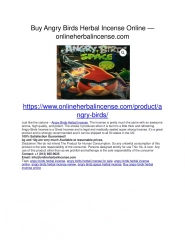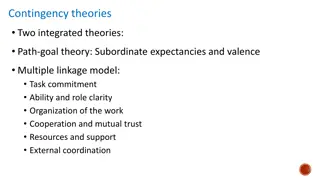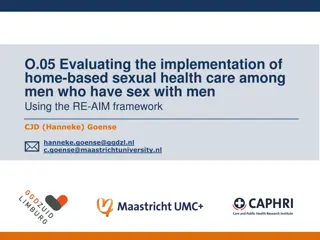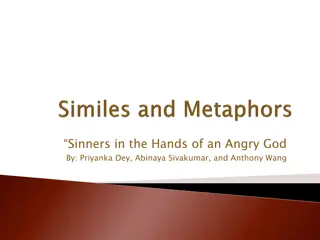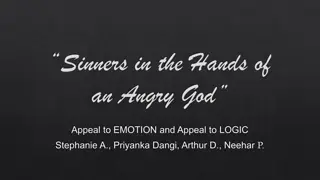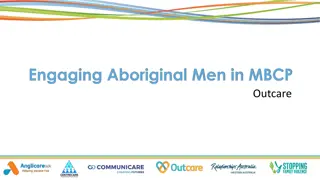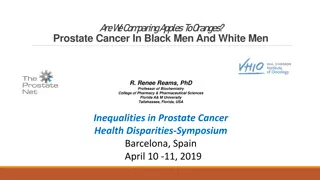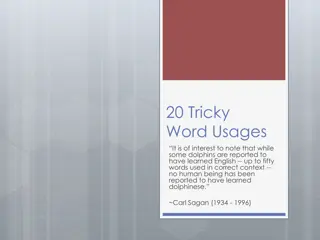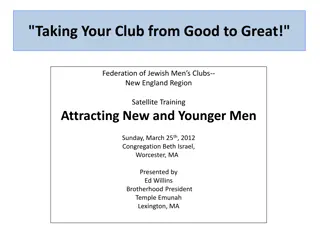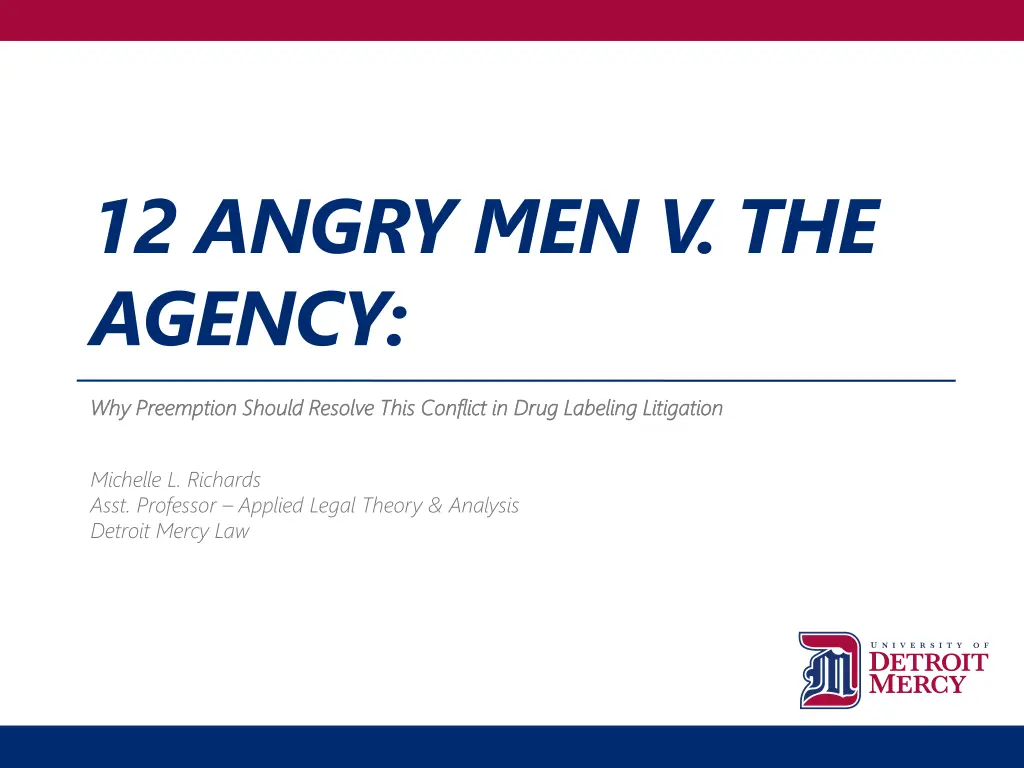
Resolving Conflict in Drug Labeling Litigation
Explore the necessity of preemption in resolving conflicts within drug labeling litigation, focusing on federal regulations, Supreme Court decisions, and the current state of affairs. Delve into the FDA's power over drug labeling, regulation processes, and the impact of Hatch-Waxman Amendments on generic drugs.
Download Presentation

Please find below an Image/Link to download the presentation.
The content on the website is provided AS IS for your information and personal use only. It may not be sold, licensed, or shared on other websites without obtaining consent from the author. If you encounter any issues during the download, it is possible that the publisher has removed the file from their server.
You are allowed to download the files provided on this website for personal or commercial use, subject to the condition that they are used lawfully. All files are the property of their respective owners.
The content on the website is provided AS IS for your information and personal use only. It may not be sold, licensed, or shared on other websites without obtaining consent from the author.
E N D
Presentation Transcript
12 ANGRY MEN V. THE AGENCY: Why Preemption Should Resolve This Conflict in Drug Labeling Litigation Why Preemption Should Resolve This Conflict in Drug Labeling Litigation Michelle L. Richards Asst. Professor Applied Legal Theory & Analysis Detroit Mercy Law
Preemption Proposition In drug warning label cases, federal preemption should apply in ALL cases for claims of failure to warn. Congress should include an express preemption provision in FDCA for failure to warn claims. Supreme Court should find conflict preemption WHY? Drug Labeling is & should be a matter of exclusive federal regulation. The danger of state court juries.
How I got here As a civil litigator: The case I won and then lost. As a legal writing professor & Moot Court Chair: Wyeth v. Levine, 555 U.S. 555 (2009). As a new legal scholar & Torts Professor: PLIVA v. Mensing, 564 U.S. 604 (2011). Proposed Rules, Supplemental Applications Proposing Labeling Changes for Approved Drugs and Biological Products, 78 Fed. Reg. 67985-02 (2013).
Current state of affairs Per Supreme Court Name-brand or pioneer drug No preemption Generic drug Preemption FDA s Proposed Regulation (Summer 2017) Proposes to remove preemption protection for generic drugs. Contrary to long-standing position of FDA Violates the sameness requirement of Hatch Waxman Amendments to FDCA Will result in mass exodus of generic drug manufacturers
FDA & Drug Labeling Regulation 1906 Wiley Act Gives agency power over product labeling 1911 Hippolite Egg Co. v. United States Affirms agency s power under Commerce Clause 1920 s/1930 s FDA could only regulate drug labels vs. food, cosmetics or medical devices 1938 FDCA created & given regulatory authority over labeling for drugs and biological products 1960 s FDA takes over control over advertising of drugs and Fair Packaging and Labeling Act passes
Regulation of Drug Labels How it works FDCA Purpose Process of Approval NDA New Drug Application FDA approval = safe and effective . CBE Changes Being Effected
Hatch Waxman Amendments Simplified approval process for generic drugs ANDA Abbreviated New Drug Application Requirement of sameness Bioequivalence Labeling Result? 80% of all drugs dispensed in U.S. are generic $200 billion saved by consumers and health care industry annually Over $1.2 trillion between 2003 and 2012.
What does everyone think? FDA? Prior to 2013 Preemption should apply 2013 Proposed Regulation removes preemption for generics Supreme Court? Preemption applies to generics only, not name brand Has asked for guidance from the FDA Should have found conflict preemption or agency preemption Congress? No express preemption Clear delegation of power to FDA for more than 100 years Removal of federal funding for proposed regulation
FDA & Preemption Pre-2013 Lack of express preemption provision does not negate implied preemption. Congress intended FDA to retain exclusive control over labeling approval process. FDCA establishes floor and ceiling for drug labeling. State law failure to warn actions threaten FDA s statutorily prescribed role as expert Federal agency responsible for evaluating and regulating drugs.
Supreme Court & Preemption Express or implied preemption Did Congress expressly include preemption within law? Do state tort claims upset regulatory balance struck by FDA? What does agency think in light of the technical subject matter? Non-Drug Warning Cases High deference to agency Geier v. American Honda Motor Company, Williamson v. Mazda Motor of America, Medtronic v. Lohr, Buckman Co. v. Plaintiff s Legal Committee Drug Warning Cases Little to no deference to agency Wyeth v. Levine (Name-brand Phenergan case) PLIVA v. Mensing (Generic metoclopramide case) Bartlett v. Mutual Pharmaceutical Co.
2013 FDA Proposed Regulation Requires generics to adhere to same obligations of name brand manufacturers WHY? Problems!! Conflicts with federal law. Contrary to long-standing position of Congress & FDA on exclusive authority of FDA over drug labeling. Consumer Safety is adversely impacted. More is not better! Economic Dangers Increase in lawsuits generics leave market. Contravention of Agency purpose
Danger of Juries Juries should not be/are NOT in a position to question judgment of FDA. WHY? Evaluative considerations are not the same. FDA Asks whether label is safe & effective Juries Ask whether a better or different warning label could have prevented Plaintiff s injury
The Court on Juries Problem with juries? [b]y their very nature, juries are ill-equipped to perform the FDA s cost-benefit-balancing function juries tend to focus on risk of a particular product s design or warning label that arguably contributed to a particular plaintiff s injury, not on the overall benefits of that design or label. Wyeth dissent Product liability litigation is less deserving of preservation when FDA conducts the equivalent of a federal safety review. Riegel majority Inappropriate to allow a jury to ask whether an additional warning would have prevented plaintiff s injury. Ford Motor Credit Co. v. Milhollin
Conclusion Wyeth Court asked the FDA for guidance on preemption lawful specific regulations describing when labeling requirements serve as a ceiling as well as a floor. FDA s proposed regulation is not the answer. Answer? Express Preemption Congress Conflict Preemption Courts Agency Preemption - Courts

